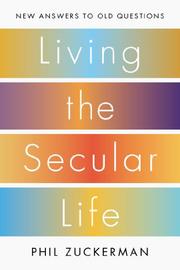How American culture produces irreligion…

One third of Americans under 30 are without religious affiliation. When all adults are considered together, one fifth of all adults have no connection to religion—up from two percent in 1950.
These are the “nones.” When asked by pollsters which religion they belong to, these folks check the “None” box. They self-identify as atheist, agnostic, secular or simply nothing in particular.
“What is causing this recent growth of irreligion?” Phil Zuckerman answers his own question by listing several reasons on his Psychology Today blog, “The Secular Life: Thriving Without Gods or Gurus.” He suggests that a “variety of factors is working simultaneously”:
1. a backlash against the religious right (many Americans are rejecting the identity of “Christian” because they don’t want to be associated with the likes of Ann Coulter, Michelle Bachman, or Phil Robertson),
2. a backlash against the pedophile priests scandal within the Catholic church (many American Catholics have become ex-Catholics as the extent of the criminal activities have become widely publicized),
3. a result of more women working outside of the home and functioning as primary household breadwinners (women tend to be the purveyors of religion in most homes, and so when they go off to work in significant numbers, religion starts to fade),
4. the delaying of marriage and having of children (both life cycle events are correlated with increased religious involvement, so as they are postponed, religiosity suffers),
5. the popularity of numerous television shows that are flippantly critical of religion (think Jon Stewart, Stephen Colbert, Bill Maher, “South Park,” “Family Guy,” “House,” etc.),
6. the ubiquity of the internet (no single technology so clearly increases individualism, and individualism and secularization go hand in hand).
Dr. Zuckerman is an engaging apologist for secularity in its many forms. His blog and his most recent book, Living the Secular Life: New Answers to Old Questions, are important sources of insight into the secular mind and into the strategy of those who would argue for secularism “as a positive moral creed.” In all likelihood, Zuckerman and those like him will be more effective advocates of secularity than angry, strident atheists such as Richard Dawkins, Sam Harris and Lawrence Krauss.
Dr. Phil Zuckerman is professor of sociology at Pitzer College, one of the Claremont Colleges in California. Dr. Zuckerman specializes in the sociology of secularity and is the founder and chair of the first secular studies program in the world.
The quote above is from Dr. Zuckerman’s blog post, “The Rise of the ‘Nones’: Why more Americans are leaving religion.”


 February 20, 2015
February 20, 2015 







Comments are closed.